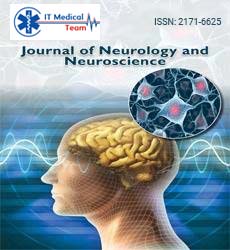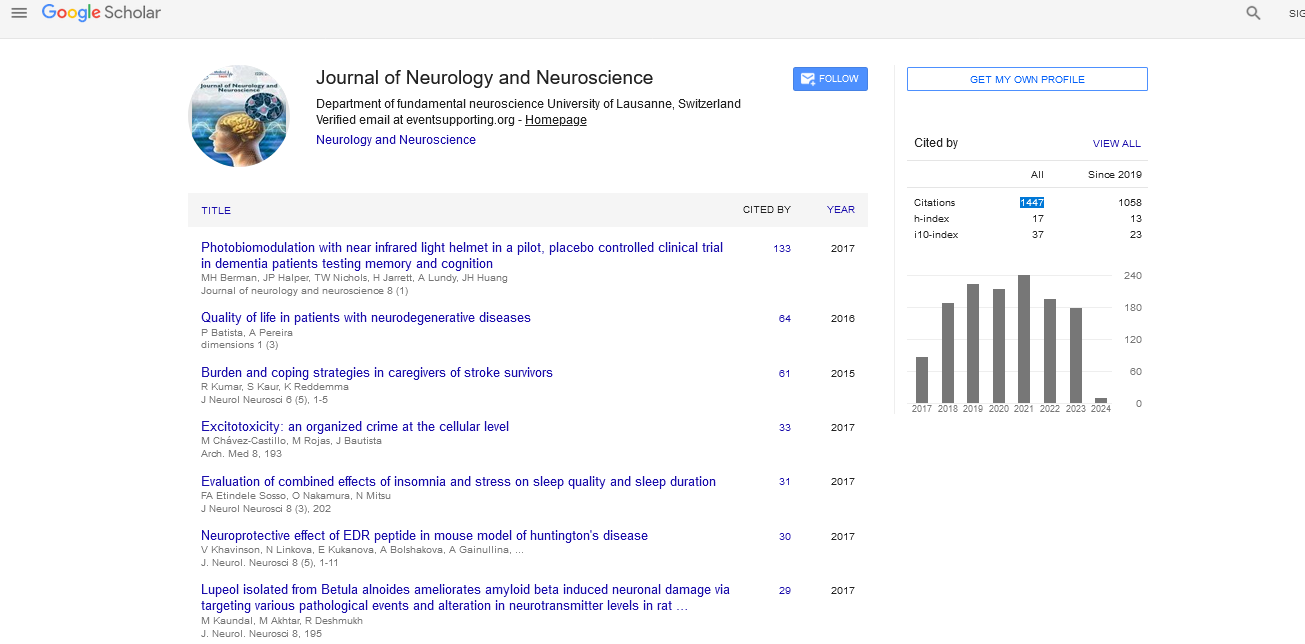Opinion - (2022) Volume 13, Issue 12
Psychological science in the treatment of mental disorders
Sawzan Marzouky*
Health Psychology Center, Riyadh, Saudi Arabia
*Correspondence:
Sawzan Marzouky, Health Psychology Center, Riyadh,
Saudi Arabia,
Email:
Received: 01-Dec-2022, Manuscript No. ipjnn-23-13380;
Editor assigned: 03-Dec-2022, Pre QC No. P-13380;
Reviewed: 17-Dec-2022, QC No. Q-13380;
Revised: 23-Dec-2022, Manuscript No. R-13380;
Published:
31-Dec-2022
Introduction
Cognitive, social, experimental, and health psychology,
as well as behavioural neuroscience and biopsychology, are
all included in Psychological Science. The journal frequently
publishes papers that use slice- edge exploration procedures
and slice- edge analysis approaches. Psychology is a wisdom
that promotes society and improves our lives. Psychologists
study the connections between brain function and geste ,
as well as the terrain and geste , with the thing of perfecting
our understanding of the world around us. Psychology
is a broad subject. Psychologists take over introductory
and applied exploration, consult with communities and
organisations, diagnose and treat cases, and educate unborn
psychologists and others interested in other fields. They put
your intelligence and personality to the test.
Description
Numerous psychologists work in the medical field.
They estimate behavioural and internal health as well as
well- being. Other psychologists probe how people interact
with one another and with computers, with the thing of
perfecting these connections. As people learn how to make
choices that ameliorate their health and well- being, cerebral
study can help reduce the profitable cost of complaint on
government and society. Educational evaluations have
made significant progress in aiding kiddies with learning
impairments. Cerebral wisdom aid preceptors in gaining
a better understanding of how children comprehend,
process, and recall information.
Psychologists do study using the scientific system.
The scientific system is a process for making compliances,
collecting data, formulating ideas, testing prognostications,
and interpreting issues that's standardised. compliances
are made by experimenters in order to characterise and
measure geste . Psychologists are not the only bones trying
to figure out why people bear the way they do and how to
attack social problems. Proponents, religious leaders, and
politicians, among others, are all trying to explain mortal
geste . still, psychologists believe that exploration is the
most effective fashion for learning about people and their
relations with others. Rather than espousing a champion's
argument that humans have free will, a psychologist would
gather data to experimentally assess whether people can
laboriously control their own geste.
Rather than trusting a politician's claim that opening
a new internal health centre will enhance the lives of
people in the inner megacity, a psychologist would conduct
an empirical study to see how carrying internal health
treatment affects people's lives. Humanism is a cerebral standpoint that emphasises the examination of the entire
person. Humanistic psychologists examine mortal geste not
just from the perspective of the onlooker, but also from
the perspective of the person who's carrying. Humanistic
psychologists believe that a person's conduct are told by his
or her inner sentiments and tone- image. Scientific laws can
be applied to any situation, but cerebral explanations are
constantly limited to specific times and locales. Psychology
analyses the consequences of social and artistic changes
on geste since it studies humans. Psychology doesn't take
place in a vacuum. Over time and in different conditions,
people's conduct evolves. Because of these factors, as well
as individual dissonances, exploration findings are only
dependable for a short period of time [1-5].
Conclusion
Psychologists conduct research using the scientific
method. The scientific system is a standardised process for
making compliances, collecting data, formulating ideas, testing predictions, and interpreting issues. Experimenters
create compliances in order to characterise and measure
geste. Psychologists are not the only ones attempting to
understand why people behave the way they do and how
to address social issues. Proponents, religious leaders,
and politicians are all attempting to explain mortal geste.
Nonetheless, psychologists believe that exploration is
the most effective way to learn about people and their
relationships with others. Rather than supporting a
champion's claim that humans have free will, a psychologist
would collect data to test whether people can laboriously
control their own gestation.
Acknowledgement
None.
Conflict of Interest
None.
References
- Masrori P, Van Damme P. Amyotrophic lateral sclerosis: A clinical review. Eur J Neurol. 2020;27(10):1918-29.
Google Scholar, Indexed at, Crossref
- Vidale S, Consoli A, Arnaboldi M, Et al. Postischemic inflammation in acute stroke. J Clin Neurol. 2017;13(1):1-9.
Google Scholar, Indexed at, Crossref
- Stanley D, Moore RJ, Wong CH. An insight into intestinal mucosal microbiota disruption after stroke. Sci Rep. 2018;8(1):1-2.
Google Scholar, Indexed at, Crossref
- Matsuura M. Structural modifications of bacterial lipopolysaccharide that facilitate gram-negative bacteria evasion of host innate immunity. Front Immunol. 2013;4:109.
Google Scholar, Indexed at, Crossref
- Kuriakose D, Xiao Z. Pathophysiology and treatment of stroke: Present status and future perspectives. Int J Mol Sci. 2020;21(20):7609.
Google Scholar, Indexed at, Crossref





